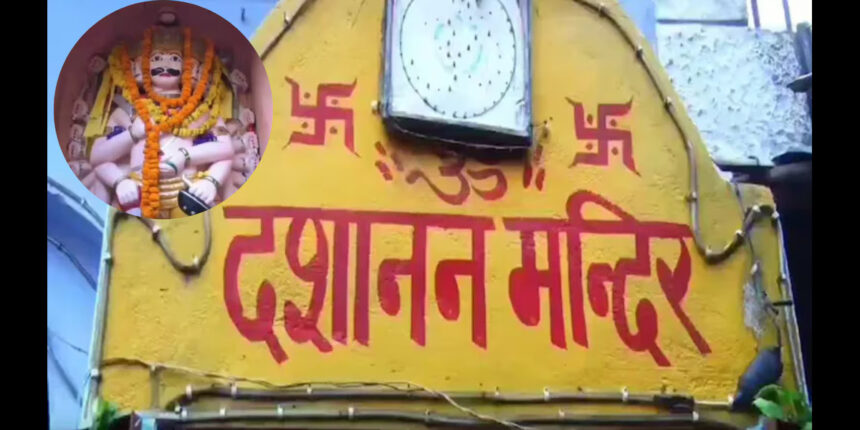A distinctive and long-standing religious heritage may be found in Kanpur, Uttar Pradesh. Despite the fact that effigies of Ravan, who is frequently seen as a representation of evil, are burnt all throughout the nation on Dussehra, there is a temple in the Shivala neighbourhood of Kanpur where Ravan is actually revered on this day.
Reportedly the only Ravan temple in the nation to open only during Dussehra, this temple is thought to be around 158 years old. It stays closed the other 364 days of the year.
The temple opens early on Vijayadashami (Dussehra) every year, and lengthy lines of worshippers assemble to pray and give aarti (ritual devotion) to Ravan.
The temple closes once again after the special evening puja and aarti, and it won’t reopen until the following year.
Why Does This Place Worship Ravan?
The worship of Ravan at this temple has a unique religious and historical importance. Constructed in 1868 by Maharaj Guru Prasad Shukla, a devoted devotee of Lord Shiva, the temple honours Ravan as a person of great wisdom, devotion, and strength rather than as a representation of evil. Maharaj Guru Prasad Shukla asserts that Ravan was not only the enemy in the Ramayana but also a strong monarch, a learnt scholar, and a devoted follower of Lord Shiva.
Worshipping Ravan, according to temple devotees, confers power and intelligence. They place gourd blossoms, which are thought to be Ravan’s favourite, at his feet and light oil lamps during Dussehra. On this day, the temple’s idol of Ravan, who is carefully worshipped and magnificently decorated, is considered the protector of strength.
According to temple priest Ram Bajpai, “Ravan was regarded as one of the most powerful and knowledgeable beings.” Here, we honour that sage and loyal manifestation of Ravan. We burn an effigy of him in the evening to symbolise his conceit and haughtiness.
Kanpur’s religious and cultural legacy is unique in that it has a history of celebrating Ravan’s dedication and knowledge, even on the day of his symbolic loss. It displays a more comprehensive viewpoint that honours the merits of a person who is sometimes misunderstood in addition to celebrating the triumph of good over evil.

